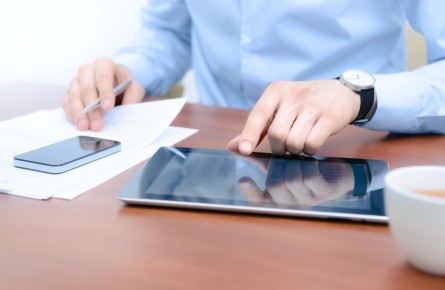
You may think it’s convenient to use your personal bank account for your startup finances, but a little extra effort to create a separate business account could protect your legal liability and bring tax advantages down the track.
Legally BAS owner and MYOB advisor Debra Anderson says not having a separate business and personal account is one of the most common financial management mistakes startups make. In fact, she calls it a “huge error”.
“Get a business account so you can link it to the financial software, keep it clean and know where your money is going,” she says.
Loandesk co-founder and director Leigh Dunsford agrees.
“Advantages of having a business account include building a trading history for the bank to see, having a separate debit card just for business expenses and if you plan on accepting credit card payments, a business account is mandatory,” he says.
“Come tax time, it will make it a lot easier to separate your personal and business expenses and you should always consult your accountant about the tax advantages. It’s also a good idea to develop good business habits early when starting out, as well as showing your customers you’re serious.”
It’s generally free to set up a business account and using a personal account could not only affect your customers, it also suggests to potential investors and employees you’re not serious.
Also if your startup involves partners, then a business account is a must to allow for transparency.
“Each partner will have access to the account and therefore be accountable to any expenses that occur. I am sure you won’t be giving anyone else access to your personal account,” Dunsford says.
In terms of legal liabilities, operating with your personal bank account may put you front and centre if any claims were to be made against your business. However, when starting out and operating as a sole trader, you will still be personally liable, even if you operate from a business account, Dunsford explains.
“When a person carries on business from their personal account on behalf of a business, there is a strong argument to assume that even if that person states that the liability should lie with the business, due to the fact that all transactions happened from the personal account, then that person is the sole personal operator and personal responsible for the businesses actions.”
Although you may think business and personal accounts offer the same benefits, there are a range of features to consider when selecting your business account. Features include interest rates, risk protection options, overseas currency protection and the ability to connect payment systems.
Before opening your business account, shop around, as some banks offer a limited amount of fee-free transactions while others have unlimited fee-free transactions. Monthly maintenance fees also vary, as do the interest rates on offer.
Banks offer different security mechanisms but generally focus around a single-use password that expires after a set period of time. If a business trades in international currencies, some banks offer protection against foreign exchange risks as well.
Some will allow you to link additional accounts, whether business or personal, and access can be delegated to other people, such as employees or your accountant.
One of the main features is the ability to connect payment systems from different devices. These include iPhone and iPad payment systems, Eftpos terminals, as well as Internet payment gateways.
Written by: Nicola Trotman
This article is sponsored by Australia and New Zealand Banking Group Limited ABN 11 005 357 522 (ANZ).
Success starts here
If you’re thinking of starting a small business, or have recently launched one, you want to do everything you can to ensure its success. Visit the $2 Billion Lending Pledge to find your local ANZ Small Business Specialist and get an indication of how much you could borrow.


COMMENTS
SmartCompany is committed to hosting lively discussions. Help us keep the conversation useful, interesting and welcoming. We aim to publish comments quickly in the interest of promoting robust conversation, but we’re a small team and we deploy filters to protect against legal risk. Occasionally your comment may be held up while it is being reviewed, but we’re working as fast as we can to keep the conversation rolling.
The SmartCompany comment section is members-only content. Please subscribe to leave a comment.
The SmartCompany comment section is members-only content. Please login to leave a comment.